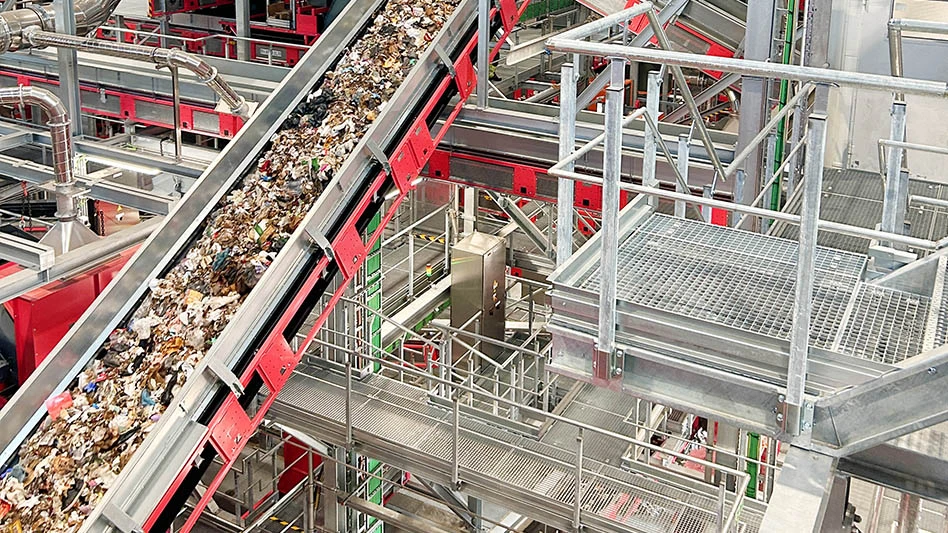
Photo courtesy of Recology
San Francisco-based waste and recycling services provider Recology says some of the compost it makes from collected organic materials is helping vineyards and other farms build healthy soils in California.
In a mid-September news release issued while the grape harvest is in full swing on the West Coast, according to Recology, it says adding compost to farmland feeds the microbial colonies in the top 14 inches of topsoil that nurture the roots of food crops.
Recology cites Cordero Vineyards of Napa County, California, as a grape grower that has been committed to using compost since at least 2008.
“Cordero embraces sustainable farming practices, including certification by the California Sustainable Winegrowing Alliance, growing cover crops and using an electric tractor” in addition to using compost, Recology says.
Cordero sources its compost from Recology, according to Robert Reed, who credits his waste and recycling firm with pioneering curbside food scrap collection for composting in North America.
“It helps benefit soil health and sequester carbon and ultimately helps grow grapes that become a very nice glass of wine," says Debra Becker of Cordero Vinyards.
Recology's compost is made from food scraps and yard trimmings, including sticks and leaves, collected from city residents and businesses. The finished compost acts as a soil amendment and helps grow crops ranging from almonds, walnuts and table grapes to tomatoes, peaches, plums and other fruits and vegetables.
Frank Olagaray, owner of Blossom Vineyards in Thornton, California, grows wine grapes, almonds, olives and walnuts. Olagaray says applying compost has improved his soil’s health, plus curbside composting material helps his farm save water.
Recology calls compost “a natural sponge that attracts and retains moisture from rainfall and irrigation.”
“When it rains, the water only penetrates like 3 or 4 inches into the compost, so that tells me it’s retaining a lot of water," Olagaray says.
“As more cities implement composting collection programs, residents and businesses can take satisfaction in knowing that by composting at the curb, they help improve soil health on local farms, and that helps farms grow healthy produce," Recology concludes.
Latest from Waste Today
- Meridian organizes aid for flood victims
- Republic adds electric trucks, new landfill gas projects in 2024
- IEG hires general manager of service
- FZUK announces new commercial director
- Small-scale WTE partnerships
- Northwest Natural Renewables proposes Ohio landfill project
- US Senate backs reduced cuts to EPA
- Waste Connections announces Q2 results





